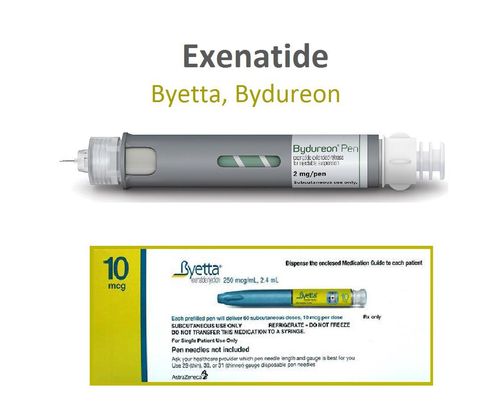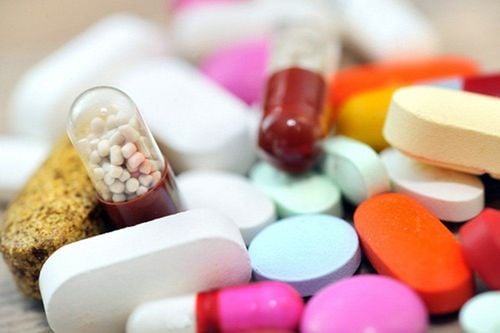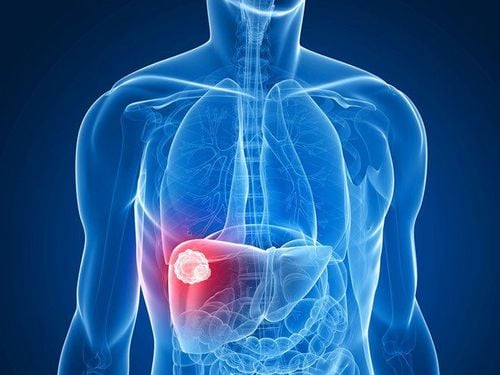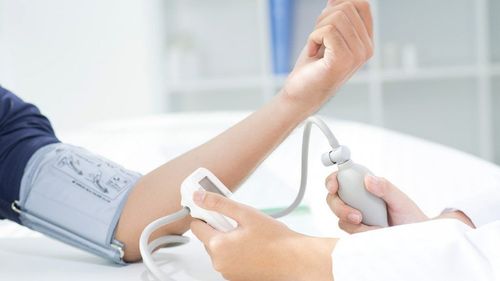This is an automatically translated article.
The article is professionally consulted by Professional Advisor, Associate Professor, Dr. Hoang Dang Mich and Master, Doctor Do Xuan Chien - Department of Medical Examination and Internal Medicine - Vinmec Ha Long International General Hospital.Insulin resistance is a condition in which the body's cells need a higher than normal amount of insulin. The World Health Organization has defined that diabetics have insulin resistance when they have to take insulin more than 60 units. taste/day. There are 3 levels of insulin resistance: mild (no more than 80-125 units/day), moderate (125-200 units/day), and severe (over 200).
1. Causes of insulin resistance
Insulin resistance is divided into two categories: immune and non-immune.
1.1 Insulin resistance due to the body's immune system Many anti-insulin antibodies circulating in the blood, when combined with insulin from outside, will inhibit the effect of insulin, causing immune insulin resistance. In fact, most insulin-treated patients have circulating anti-insulin antibodies, but at low levels, they are often asymptomatic.
1.2 Non-immune insulin resistance Includes metabolic and endocrine disorders in which insulin is inhibited by substances with insulin resistance activities such as insulinase enzymes, free fatty acids... There are two types: Acute is an early onset of insulin resistance and an elevated insulin requirement for a few days. Chronic is seen in occult diabetes or glucose intolerance (obesity, hyperthyroidism...).
The patient's insulin demand is always high, the mechanism of insulin resistance is not clear. If the primary disease is effectively treated, insulin resistance will also go away.
Trắc nghiệm dành riêng cho người mắc đái tháo đường: Chế độ ăn của bạn đã hợp lý chưa?
Người bị bệnh đái tháo đường cần phải quan tâm nhiều hơn đến cách tính toán khẩu phần ăn sao cho phù hợp với nhu cầu và tình trạng sức khỏe. Nếu chưa rõ, bạn có thể tìm hiểu kỹ hơn thông qua bài trắc nghiệm ngắn sau đây.2. Effects of insulin resistance on the body
Unfortunately, insulin resistance often has no obvious symptoms. You can be insulin resistant for years without even knowing it, especially if you don't regularly check your blood sugar.Some people, insulin resistance can develop acanthosis nigricans. Symptoms include dark patches on the neck, groin, and armpits. Acanthosis vulgaris is a classic sign of insulin resistance, which carries a high risk of developing type 2 diabetes. Acanthosis nigricans has no cure, but if you treat the cause, the skin color can return. normal.
Insulin resistance can cause potential damage to blood vessels, which can increase the risk of heart disease and stroke.

Like insulin resistance, people with type 2 diabetes may not feel any symptoms, especially in the early stages of the disease.
Symptoms of common diabetes include feeling thirsty and urinating frequently. You can eat normally, or even eat more than you need, and still feel hungry if you're sick. Type 2 diabetes can also cause nerve problems that lead to tingling sensations in the hands and feet. You may also feel more tired than usual if your diabetes is not well controlled.
3. Where is insulin resistance in diabetics detected?
If there are no obvious symptoms, insulin resistance (diabetes and prediabetes) is usually detected through blood tests.
One method to diagnose diabetes or prediabetes is the A1C test. This test gives you an idea of your average blood sugar over the past 2–3 months. You do not need to fast before this test. An A1c result of less than 5.6% is considered normal. An A1C result between 5.7 and 6.4% indicates prediabetes. An A1C result equal to or above 6.5% indicates diabetes. Your doctor may repeat this test on another day to confirm the diagnosis.
In addition to the A1C test, other blood tests can also check your blood sugar. A fasting blood sugar test - done after fasting or drinking for at least 8 hours - will provide an indicator of your fasting blood sugar. If the results are high, a second test may be needed to confirm the reading a few days later.
If two tests show high blood glucose levels, you are diagnosed with diabetes or prediabetes. A fasting blood sugar level below 100 mg/dl is considered normal. Levels between 100 and 125 mg/dl are diagnostic of prediabetes. Levels equal to or greater than 126 mg/dl are diagnostic of type 2 diabetes.
You can check your blood glucose levels any time of the day. For these “random” tests, blood sugar levels below 140 mg/dl are considered normal, levels between 140 and 199 mg/dl for prediabetes, and levels equal to or more than 200 mg /dl for diagnosis of type 2 diabetes.
Diabetes tests should begin at age 45, along with normal cholesterol and other health markers. Your doctor may order tests earlier, if you are overweight and:
Live a sedentary lifestyle. Have a low good (HDL) level or a high triglyceride level. Have a parent or sibling with diabetes. Be Indian-American, African-American, Latino, Asian-American, or Pacific Islander. Have high blood pressure (140/90 mmHg or higher). There are symptoms of insulin resistance. Have been diagnosed with gestational diabetes (a temporary condition that develops during pregnancy). Giving birth to a baby weighing more than 4 kg. Even if your test results come back in the normal range, you should still check your blood sugar at least every three years.
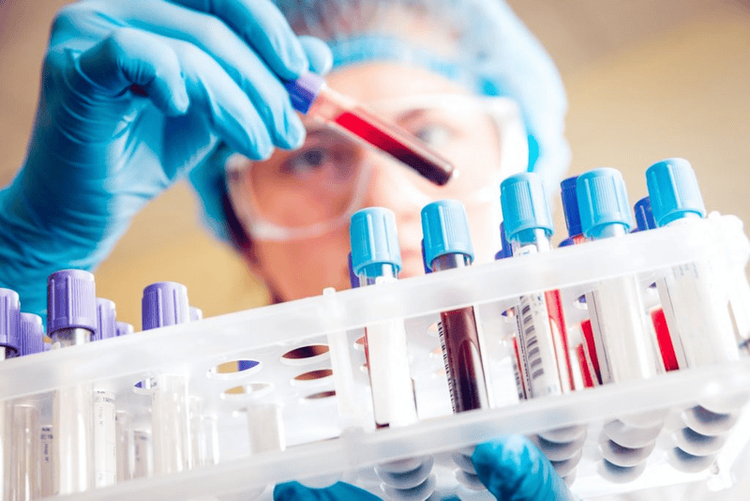
It is important to remember that a diagnosis of insulin resistance or diabetes is a warning. The initial conditions of the disease can be improved if you make healthy lifestyle choices, and you can prevent type 2 diabetes. This is very important, because of complications from diabetes. This includes not only cardiovascular disease, but also problems with the kidneys, eyes, and nervous system.
Vinmec International General Hospital is one of the hospitals that not only ensures professional quality with a team of leading medical doctors, modern equipment and technology, but also stands out for its examination and consultation services. comprehensive and professional medical consultation and treatment; civilized, polite, safe and sterile medical examination and treatment space. Customers when choosing to perform tests here can be completely assured of the accuracy of test results.
Please dial HOTLINE for more information or register for an appointment HERE. Download MyVinmec app to make appointments faster and to manage your bookings easily.




